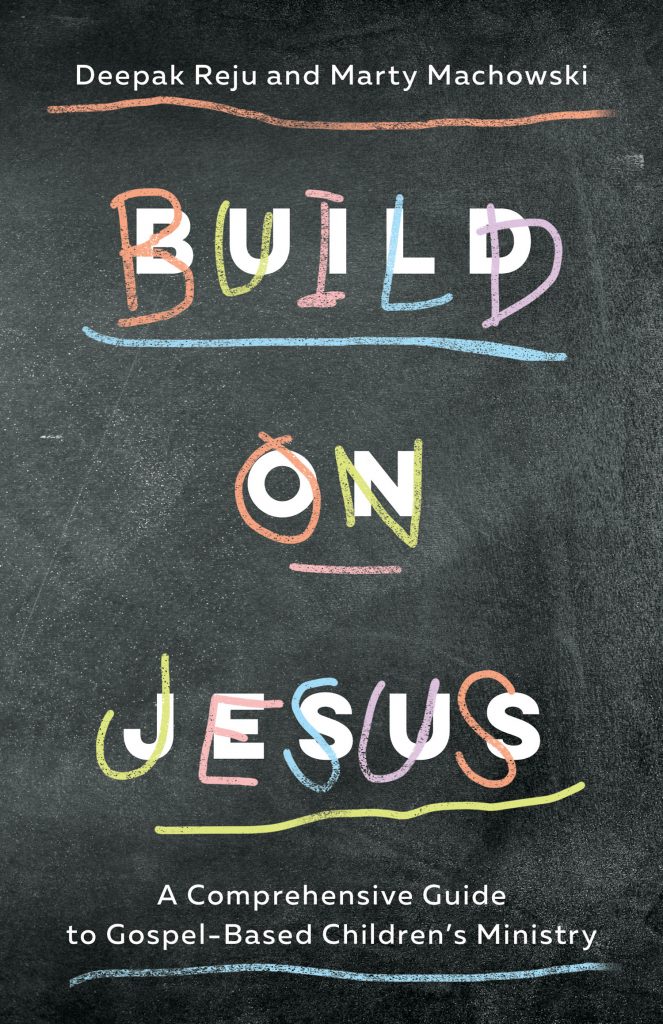God has entrusted you with a precious stewardship of children in your church. For many years, these children grow up in your church community, listen to sermons, participate in Sunday school classes, and frolic through VBS. Are you doing the best you can for these kids? What does faithfulness look like in children’s ministry?
Consider ten questions about building a healthy children’s ministry.
1. Do you have enough volunteers?
This is the bane of every children’s ministry I’ve ever encountered. No one has ever said to me, “We’ve got more volunteers than we can handle!” Rather, children’s ministry doesn’t have enough help and the children’s ministry director (CMD) plugs holes in a constantly leaking dam.
What can be done? The church needs to take ownership of the children’s ministry and not let this burden fall solely on the CMD. The church’s leadership should also get behind recruitment. If the members never hear from the pulpit both the value of children and the importance of serving the kids, members will rarely show up to help. They will serve in other ways because there are plenty of opportunities in church to occupy their time.
2. Is your curriculum sound?
You can teach about David and Goliath as if the point of the story is the underdog will beat the big, bad giants. The message to our kids becomes: “You can be courageous like David and beat the big, scary things in your life!” But you’ll entirely miss the point of 1 Samuel 17. A careful look shows the real point—in our weakness, we must fight to preserve the Lord’s honor in all things. Like the entire Bible, this story is about God; it’s not about us.
What are your teachers and curriculum communicating to your kids? There’s a lot of bad curricula circulating in the children’s ministry world. If you are not careful, you could be teaching moral lessons devoid of gospel riches. That’s a great way to produce Pharisees in your children’s program. Lots of law; no gospel grace.
Take a good and hard look at your curriculum and ask:
- Content: Is it biblical and gospel-rich?
- Developmentally appropriate: Does it match the child’s learning level?
- User-friendly: Is it easy to use?
- Fun and creative: Does it keep the kids engaged?
How does your curriculum stack up against these four criteria? If you answered “no” to any of these questions, you probably need to reexamine what you’re offering to your kids.
3. Are you likely to burn out your children’s ministry director (CMD)?
If it is true that children’s ministry is often short of volunteers, then you’re highly likely to burn out your CMD. He or she will get stuck holding things together when things go wrong and rarely make it into the worship service. That’s a great way to spiritually and emotionally ruin your CMD (and guarantee they won’t stick around).
What can be done?
- Build a competent and talented team around the CMD. Don’t let her try to handle this all on her own.
- Shepherd the CMD’s soul, not just his job. Who he is in Christ matters more than what he does for him. Jesus cares about whether your CMD loves him. You should regularly check in about how he is doing spiritually.
- Lavish an abundance of encouragement on the CMD. Help her to know how much she is appreciated.
- Get your CMD to take regular breaks. Give him a day off every week. Get him to take vacations every year. Encourage him to rest.
Just a few of these steps will help your CMD to stick around rather than burn out and leave.
4. Is there a pastor involved?
Children’s ministry staff often feel isolated. They may get very little attention from the church’s pastors. If you are a pastor, set aside time and pay attention to your children’s ministry staff. Offer a weekly time to meet up. Provide guidance, encouragement and feedback. Cast vision for where you want things to go. Be willing to have hard conversations with prickly or picky parents on behalf of your CMD.
5. Do you encourage and proactively train your volunteers?
Let’s say Donovan decides to volunteer for children’s ministry. He’s single and has no previous experience with children. Throw him into a classroom of twenty two-year-olds. Give him no training. Don’t check on him while he’s in the class. It’ll probably feel so chaotic that he’ll come away thinking, “Wow, that was rough.” He won’t look forward to next month, and eventually, he’ll find an excuse to stop volunteering.
Train your volunteers so they have a better handle on what to do and offer loads of encouragement, especially in the more difficult classrooms. Training and encouragement help your volunteers to have a better overall experience and increase their motivation to keep helping.
6. Are you ready for emergency scenarios?
If a fire broke out in a children’s classroom, could your staff and volunteers organize an orderly evacuation? If a man with a gun walked into the church, would your children’s ministry team know how to lock down the floors and protect the children? Volunteers will react to these scenarios. But their improvised responses are probably not the wisest, safest, or best options. We must train, practice, and plan for these emergency scenarios before they hit. Be prepared before disaster strikes.
7. Are you building a safe environment?
A child-protection policy (CPP) is a self-imposed set of guidelines that a church comes up with to outline the parameters of a safe environment. You create a policy that outlines best practices for teachers, childcare workers and children.
A few examples of policies might include:
- Requiring at all times that two adults to be present in a nursery or classroom.
- Prohibiting volunteers from bringing food and drinks. The only items allowed are allergy-safe snacks or drinks provided by the children’s ministry staff.
- Providing background checks and references on all volunteers.
- Conducting fire drills twice a year to ensure a drill is practiced.
Because churches vary immensely in their size and needs, a CPP should be written to fit a church’s specific context.
8. Do you know how abusers operate?
You’ve got know how child abusers operate and how they could gain access to your children. They live a double life, pretending to be thoughtful, helpful and kind. All the while they’re grooming the gatekeepers so that they can gain access to your kids. Christians are often naïve and far too trusting. You’ve got to teach your church members how to protect against an abuser’s tactics.
After a sexual offender grooms the adults, he or she grooms the children in order to abuse our kids. In a church setting, our problem is much less with a stranger and much more with those whose lives regularly intersect with ours: fellow church attenders, childcare workers in the nursery, family members, and neighbors. Sexual offenders are the people we know, not the people we don’t know.
According to a U.S. Department of Justice report, law enforcement statistics show that nine out of ten teen sexual abuse victims know their abuser. Acquaintances and family victimize an even more significant number of young children. The study reports that 96.9% of child sexual abuse victims, five years old and under, are known to their abusers. Only 3.1% are strangers.
9. Will you report abuse when it happens?
If you suspect sexual abuse could be occurring, don’t settle matters in-house. Report your suspicions to the governing authorities in your community and allow them to investigate.
10. Is everything you do grounded in Scripture?
Everything you do should be shaped by the Bible—because it’s God’s very own words. You want God’s thoughts, God’s words, and God’s love to echo through all of your work. Don’t allow your views, opinions, or philosophy to trump what the Bible says. Scripture should be the very heartbeat and core of your work.
Churches must be faithful in their stewardship of children. Pick solid curriculum. Hold out gospel truths. Pray. Recruit and encourage volunteers. Shepherd your children’s ministry staff. Plan for emergency scenarios. Protect against abuse. All the while, you get to watch the Lord do wonderful things in the lives of your children. Glory be to God.
Image by jcomp on Freepik.






